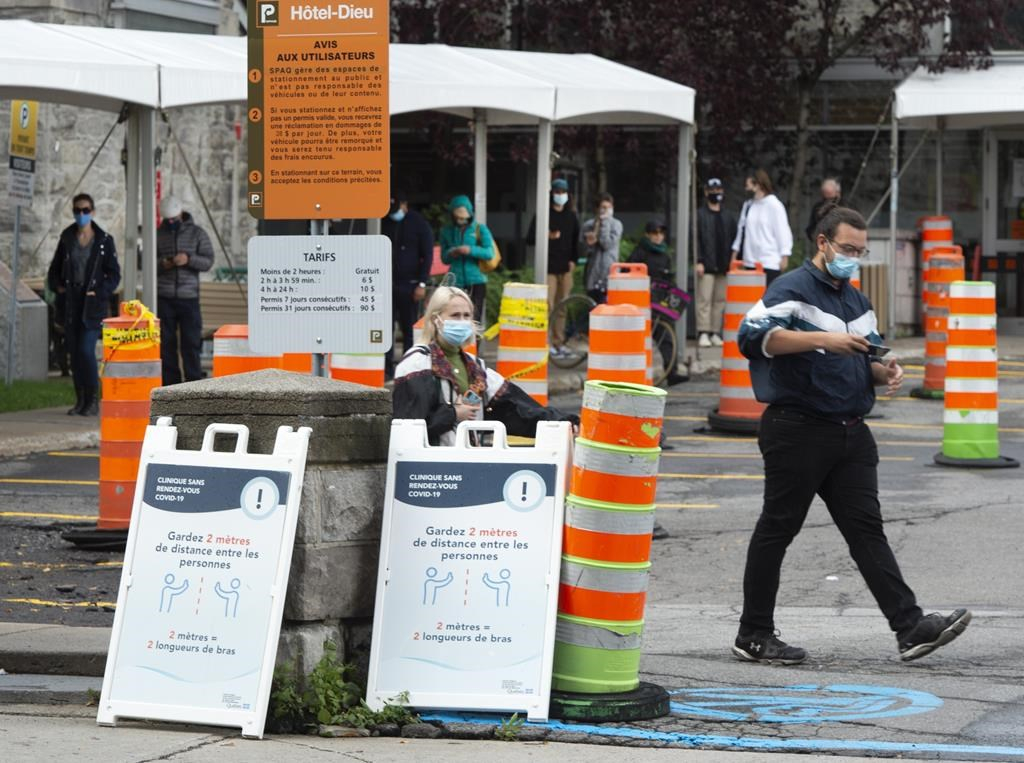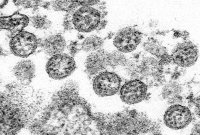Support strong Canadian climate journalism for 2025
The Quebec government promised on Thursday financial support for bars and restaurants forced to close by the province's partial lockdown, but questions remain about how restrictions on socializing will be applied.
The new rules came into effect in greater Montreal, Quebec City and a region south of the provincial capital on Thursday after the regions were moved to the province's highest COVID-19 alert level earlier this week.
Bars and restaurants — including restaurants that remain open for takeout — will be able to get loans to pay for expenses including municipal taxes, mortgage interest, electricity and rent not covered by an existing federal program. Up to 80 per cent of the loan amount — to a maximum of $15,000 — will be forgivable, Fitzgibbon told reporters at a news conference in Quebec City.
"It's damn good news for us," Paul Holder, who co-owns several restaurants in Montreal, said in an interview after the announcement. But Holder, whose businesses include the bar Darling and bistros Brasserie Bernard and Holder, said that while the money will help, it won't cover the full amount of rent and taxes.
Quebec's restaurateur association is happy with the announcement, spokesman Martin Vezina said, because it's the first time since the pandemic began that the provincial government has offered support to restaurants that doesn't have to be repaid.
Fitzgibbon said the government expects the aid will cost between $90 million and $100 million and will apply to about 12,000 businesses that have been forced to close or restrict their operations. There will be no new provincial support for workers, Fitzgibbon said, because the province doesn't want to duplicate federal aid programs.
Business owners like Holder say they're still confused about why, after building barriers to separate customers and ensuring staff are wearing personal protective equipment, they've been forced to close.
"It hurts because I think they are using the bars and restaurants as guinea pigs," Ziggy Eichenbaum, owner of Ziggy's Pub in downtown Montreal, said outside his establishment. "He needed to close something, so he figured he might as well close the bars and restaurants."
Public health director Dr. Horacio Arruda said at an afternoon press conference that the government is worried about situations that increase social contact and have an effect on people's behaviour, such as settings where alcohol is consumed.
The new restrictions also forbid people from having visitors in their homes, with few exceptions, and ban outdoor gatherings.
But Premier Francois Legault and Arruda struggled to answer questions about what exactly constitutes an outdoor gathering — for example, whether two children who are in the same class at school can play together at a park on the weekend and be supervised by their parents.
Saying it was difficult to envision every possible exception, Legault said Quebecers — and police — will have to use their judgment.
Legault said the restrictions are not intended, for example, to prevent two people who are in a romantic relationship from seeing each other even if they live at different addresses. But the regulations released by the province Wednesday are clear that people from different households cannot visit each other, with an exception for people living alone, who are allowed one visitor for non-essential purposes.
Police can issue fines of up to $1,000, plus fees, if the new rules are broken, and they will be able to get warrants by phone or other means of electronic communication to enter private homes in order to enforce the regulations, the government said Wednesday.
The measures came into effect as Quebec reported 933 new COVID-19 infections and 16 additional deaths Thursday. Health officials said two of the deaths occurred in the past 24 hours, 12 were between Sept. 24-29 and two were before Sept. 24.
Quebec continues to have by far the highest COVID-19 toll in Canada, with 75,221 cases and 5,850 deaths since the beginning of the pandemic. Hospitalizations increased to 275 Thursday, of which 46 were in intensive care.
Legault said the latest numbers show that the situation in the province is "critical."
"I know we've made some tough decisions in recent days, but there are lives in danger, and fighting the virus must remain our top priority," he said.
This report by The Canadian Press was first published Oct. 1, 2020.
— With files from Sidhartha Banerjee
———
This story was produced with the financial assistance of the Facebook and Canadian Press News Fellowship.





Comments